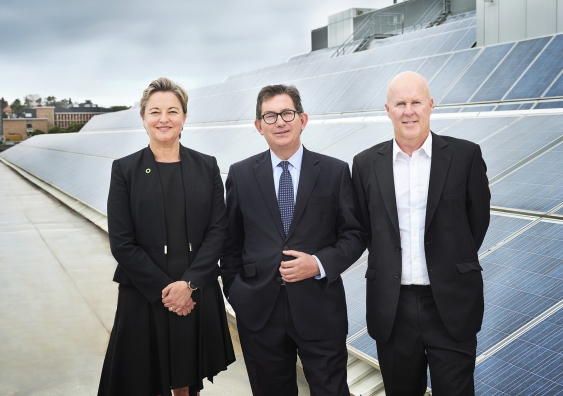UNSW steps up action on climate change
The University will divest of fossil fuel assets by 2025 as part of its net zero emissions goal.
The University will divest of fossil fuel assets by 2025 as part of its net zero emissions goal.

UNSW Sydney will add to its credentials as a world-leader on climate science, renewable energy and sustainability by moving away from investment in fossil fuels.
The University will divest from direct ownership and any commingled funds that include public equities and corporate bonds of companies whose primary business is the ownership and exploitation of fossil fuels reserves by 2025.
President and Vice-Chancellor, Professor Ian Jacobs, said UNSW’s divestment of fossil fuel assets in its investment portfolio supports its net zero emissions goal, in line with the Paris Agreement commitment to limit global warming to 1.5°C.
“UNSW has a proud history of being at the forefront of climate science and renewable energy and there is a clear expectation from our community that we forge a leadership role on climate change,” Professor Jacobs said.
“Our divestment decision is a clear statement of UNSW’s responsible investment intent and the continuation of our long and impressive journey on climate action – it is worth remembering that more than 30 years ago, the solar cell technology which powers 50% of solar panels around the world was developed right here at UNSW.”
Professor Jacobs said that UNSW’s research, education, infrastructure, and now investment choices, honour UNSW’s commitment to serve society on a local, national and global level.
The Vice-Chancellor said UNSW’s climate action initiatives also include its leadership of the ARC Centre for Climate Extremes, an agreement that will see the Sydney campus powered by emissions-free energy in the near future, and its comprehensive Environmental Sustainability Plan.
“The University’s environmental sustainability initiatives extend to the design of all new buildings at UNSW, energy, water and waste management on campus, and working to eliminate single-use plastics in food service,” Professor Jacobs added.
“The UNSW community is making a difference in big and small ways every day.”
Professor Jacobs said one of UNSW’s missions is to have a positive impact on the world and it will continue to build on and share its expertise in climate science and renewable energy.
“We owe it to UNSW’s pioneering researchers to carry on their fine legacy.”